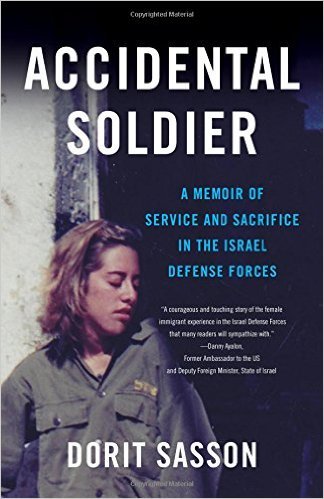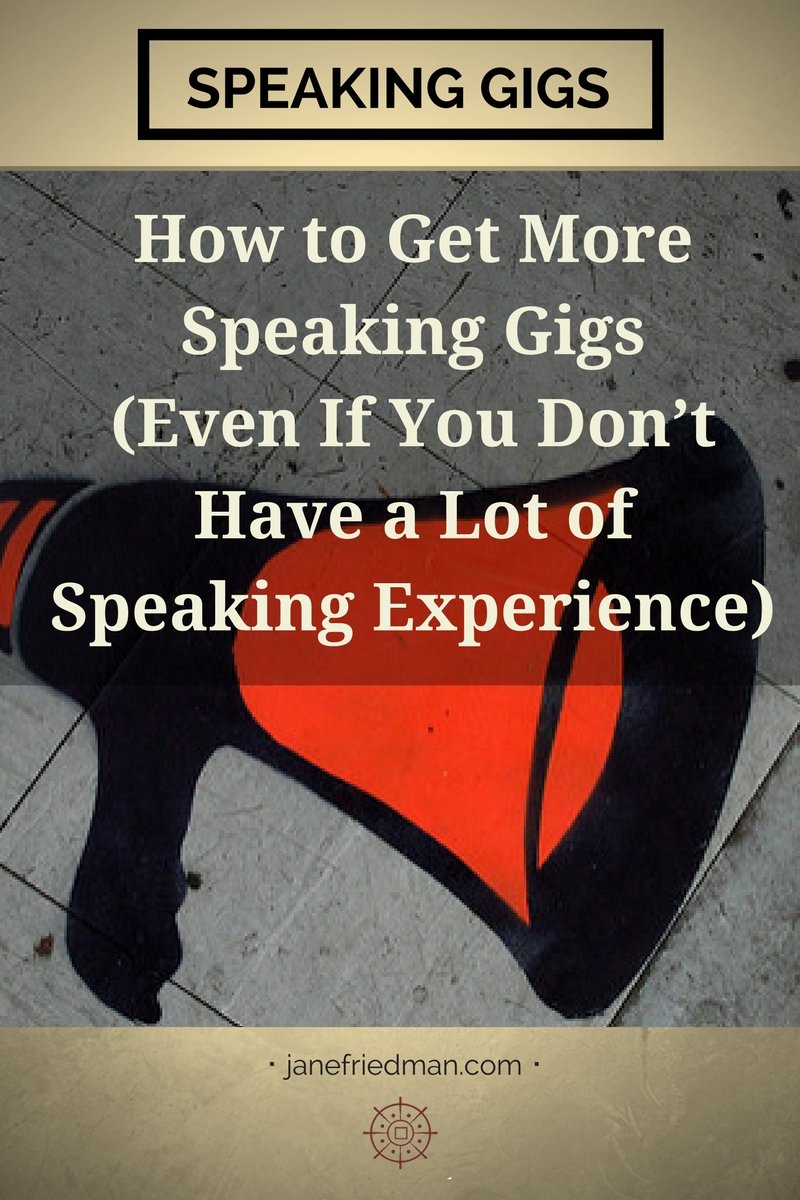
Today’s guest post is from author and speaker Dorit Sasson (@VoicetoStory).
One of the best ways to build an author platform is by doing speaking engagements. You share your expertise, come into direct contact with potential book buyers, tap into existing readership, build your email list, and ultimately increase your income.
However, you need a plan for finding these speaking gems. Where do you find them? What if you don’t have a ton of speaking experience or expertise in a particular niche?
Just for the record, speaking gigs don’t have to be a full-fledged two-hour workshop or a fancy TED Talk–type setup; they can be as simple as presentations at libraries, talks at fundraisers, and even webinars. You won’t always get paid, but coupled with selling copies of your book (which I’ve done), these types of speaking engagements are a great opportunity to increase your visibility and to build a network of fans and contacts.
To help promote my newly published book, Accidental Soldier: A Memoir of Service and Sacrifice in the Israel Defense Forces, I’ve been using a number of strategies successfully to get on the speaking radar, beginning with my local community. These three strategies have helped me land more speaking engagements.
1. Start locally.
Your local community offers wonderful opportunities for networking and speaking. Almost all of these networking communities are looking for speakers to engage their members.
Here are a few examples:
- Local rotaries love to feature different stories and profiles about their communities. You don’t have to be a member or write a book about business. You don’t have to be a bestselling author or a member of the National Speaking Association. You’ll typically be given a twenty- to twenty-five-minute speaking slot where you can talk about the themes of your book or the writing process—always offer a few helpful tips or strategies.
- Informal business-type luncheons in your area can be identified through Meetup.com, and chances are there will be quite a few of these. These are homegrown opportunities. Plan on attending a few. Get to know the members. Ask what topics might be of interest for future speaking engagements. Offer to do a talk on a subject of value. Fiction is always a harder sell than nonfiction, but if you can talk about how your book supports universal themes or lessons, you’ll have a better chance of engaging your audience.
- Bookstores and libraries are hungry for author talks and panels, but often there can be low turnout, which can be discouraging; in fact, bookstores and libraries are concerned about low turnout. Instead of immediately getting discouraged or intimidated due to a lack of a following, use your social media voice to drive “customers” to your venue using this sample plan.
2. Use the same book to appeal to different audiences.
Another tried and true way to get more speaking gigs is to appeal to multiple audiences. Use themes as a starting point. If you’re a novelist or memoirist, pitch themes that have the strongest universal appeal.
Here are examples of how I pitched six different venues with the themes of my memoir:
- For schools: I pitched my book within the framework of an author talk that also supports the objectives of the English or global studies curriculum, because serving in the Israel Defense Forces is a worldly topic that also encompasses a coming-of-age story. I also use the heroine’s journey to support the “courage piece” of the book, which is meaningful for targeting private girls’ schools.
- For Hillel campuses on US universities: I slightly changed the pitch to appeal to a Jewish student body.
- For military groups and women’s organizations: I changed the wording of the pitch to showcase the status and plight of women and what it feels like to serve as a woman in a foreign militaristic country.
- For global/refugee-type organizations: I changed the wording of the pitch to appeal to the plight of the refugee and immigrants and to give tips to directors of these organizations on how to help immigrants and refugees acculturate more effectively to the US.
- For writing groups, talks, and conferences: I pitched to conference organizers about the courage it took to write a memoir, which also encompasses the craft of memoir writing.
- For business groups: I used my story of courage to talk about another strategy: the courage to market yourself as a thought leader in your industry.
As you can see, six different themes support the needs of multiple audiences. This only took a few minutes. And this was all pitched locally.
Chances are, you’ve probably got multiple themes going on, whether you’re written an ebook, a novel, or a nonfiction print book. The more universal they are, the more effective you’ll be engaging your (local) audience.
As Maya Angelou famously said, “I’ve learned that people will forget what you said, people will forget what you did, but people will never forget how you made them feel.”
3. Join your local Toastmasters.
Talking up my book at my local Toastmasters was like working out in the gym. In fact, it toned my speaking and courage muscle to talk up the themes of my book once I decided to speak about it in the big world.
After all, the courage to speak is the courage to succeed.
Patricia Fry, author of Talk Up Your Book, encourages speakers to look for opportunities to build this special kind of muscle. She says to “present your programs in safe zones (friendly territory), among family members, at your local Toastmasters club meeting, before your writer’s group, in front of your fellow business or civic club members. These are good opportunities for you to work the bus out of your presentations.”
As I’ve learned, Toastmasters isn’t just an opportunity to practice speaking; it’s also a networking opportunity. You never know who can connect you to a particular group or organization. At our unique Women to Women Toastmasters chapter, I connected with the chapter organizer, who I later found out was the director of a women’s organization, where I later did a fundraiser for my book and sold fifteen copies.
So you don’t need impressive speaking credentials to get a speaking slot. In fact, it’s easier than you think. And it all starts locally. By creating a memorable experience for your audience, you will up the chances to sell more books.
 Speaking engagements are interactive, real and dynamic. And once your peeps connect and engage with you, they have a reason to read what you have to say.
Speaking engagements are interactive, real and dynamic. And once your peeps connect and engage with you, they have a reason to read what you have to say.
For more from Dorit Sasson (@VoicetoStory), check out Accidental Soldier: A Memoir of Service and Sacrifice in the Israel Defense Forces.

Dorit Sasson is the founder of Giving Voice to Your Courage podcast and website. She supports heart-centered business owners and helps authors build visibility and increase engagement as thought leaders. Her groundbreaking memoir, Accidental Soldier: A Memoir of Service and Sacrifice in the Israel Defense Forces, is a finalist for the Next Generation Indie Book Awards and Santa Fe Literary Awards and is also a widely read handbook on how to become more courageous in life.

[…] view post at https://janefriedman.com/get-speaking-gigs-even-dont-lot-speaking-experience/ […]
Great tips!
Thank you so much!
[…] https://janefriedman.com/get-speaking-gigs-even-dont-lot-speaking-experience/ Start locally. […]
Great info. Thank you so much for sharing.
Wonderful – great to know. Feel free to share with your peeps. Thanks!
[…] digital day and age, the key to succeeding as an author means being able to get out there and speak about your book. Gone are the days when you could just stay home and […]
[…] does an author get noticed? Through opportunities for exposure. Speaking opportunities is what will put your platform to work. Plus, it’s a darn good way to […]